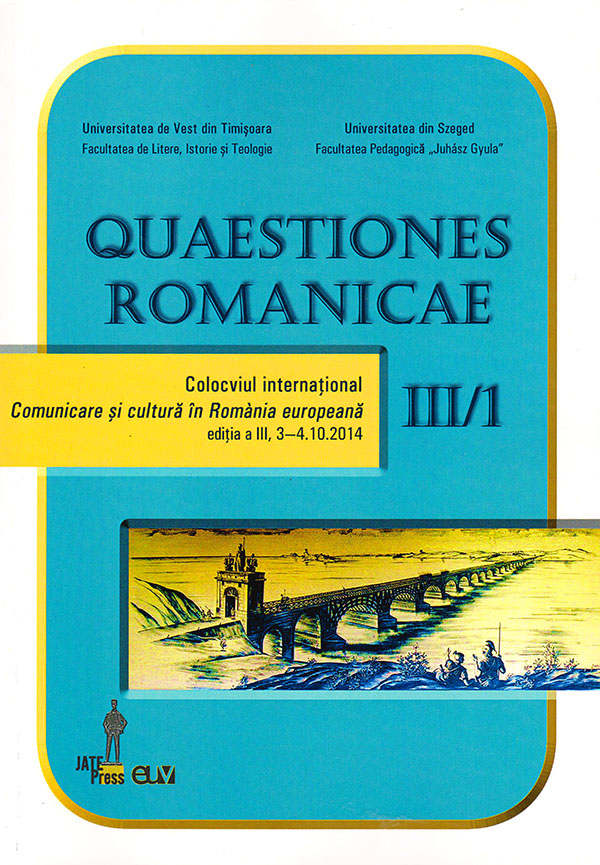Elemente de interes militar-strategic în corespondenţa lui Ovidius de la Tomis
Abstract: (Elements of military-strategic interest in Ovid’s correspondence from Tomis) The Roman knight Publius Ovidius Naso reaches Tomis, Dacia’s maritime gateway, pretending to have been exiled at Emperor Augustus’ order. The reasons for his punishment are still unclear and, in addition, it seems that his exile was based neither on a court sentence nor a Senatorial decision. Despite this pretext, he was treated with great courtesy in the royal house of Thrace, a vassal of Rome. The moment of his arrival is not devoid of meaning: the first decade of the new era coincides with Rome’s intense political and military activity in the Danube River basin, where several events will be started to transform Thrace into a Roman province and the territories at the north of Haemus/Balkan Mountains into the province of Moesia. Yet the local ethno-political formations have the resources to fight back, so several attacks of the Getae and their associated peoples take place in the future regions of Scythia Minor/Dobrogea. Incidentally, the poet Ovid is familiar with the Geto-Dacian language and has an intense and apparently literary correspondence with the Imperial House. He also seems to be familiar with the political-military movements on other fronts, such as Germany
Keywords: Ovid, Tomis, letters, strategic informations, Roman Empire.
Rezumat: Cavalerul roman Publius Ovidius Naso ajunge la Tomis, poarta maritimă a Daciei, sub pretextul unei trimiteri în exil din ordinul împăratului Augustus. Motivele sancţiunii rămân neclare şi, în plus, se pare că ea n-a rezultat dintr-un proces sau o decizie senatorială. În pofida acestui pretext, el este tratat cu multă curtoazie de casa regală a Traciei, vasală Romei. Momentul sosirii nu este nici el lipsit de semnificaţii: primul deceniu al noii ere coincide cu o activitate politico-militară foarte intensă a Romei în bazinul Dunării, unde vor fi iniţiate mai multe evenimente care vor transforma Tracia în provincie romană, iar teritoriile de la nord de Munţii Haemus/Balcani vor fi organizate în provincia Moesia. Formaţiunile etno-politice locale au însă resurse să riposteze, astfel că în regiunea viitoarei provincii Scitia Minor/Dobrogea au loc mai multe atacuri ale geţilor şi popoarelor asociate. Întâmplător, poetul Ovidius este cunoscător al limbii geţilor şi are o intensă corespondenţă, aparent literară, cu Casa Imperială. El pare să fie de asemenea familiarizat cu mişcările politico-militare de pe alte fronturi, precum cel din Germania.
Cuvinte-cheie: Ovidius, Tomis, scrisori, informaţii strategice, Imperiul Roman.
